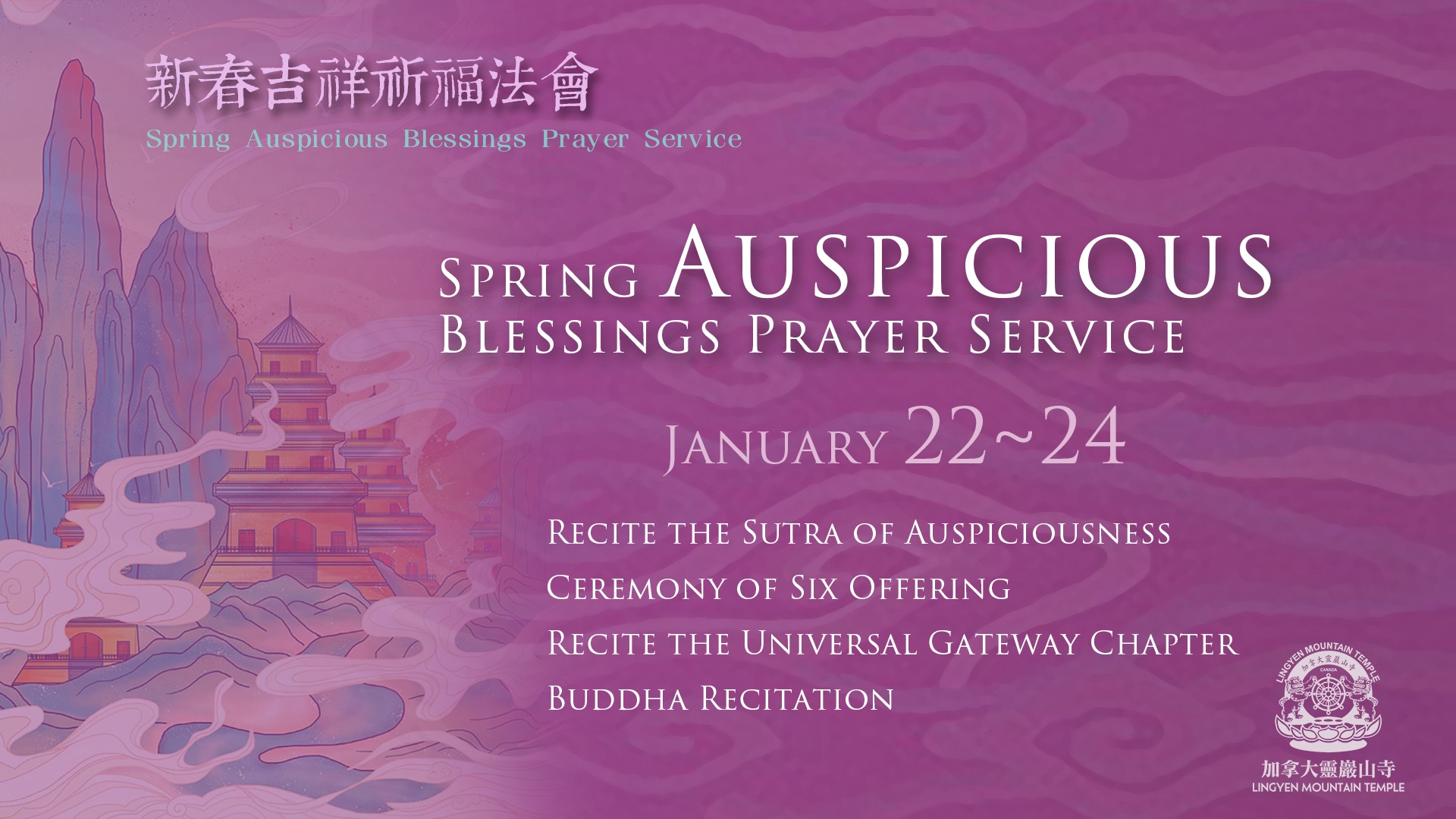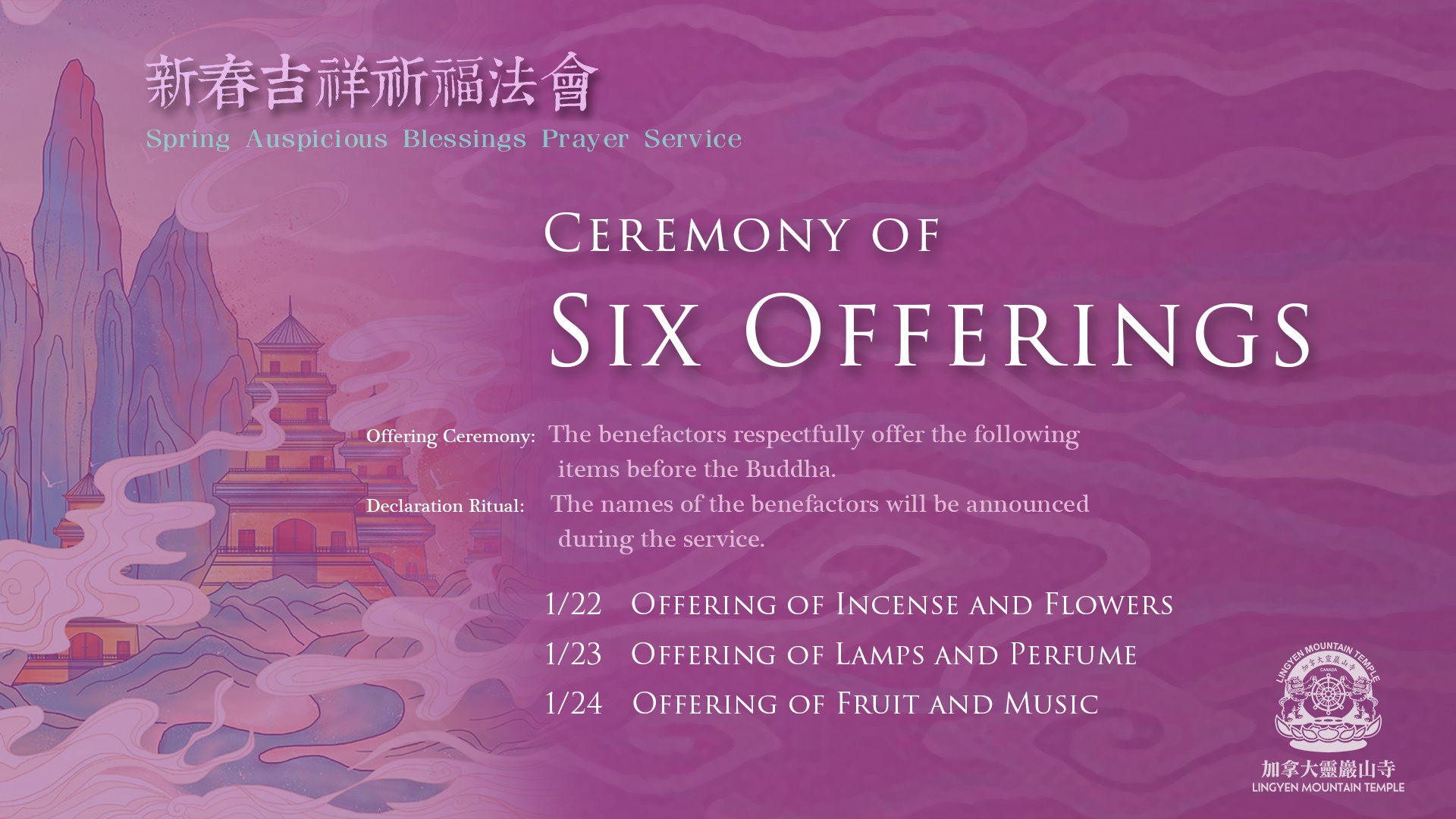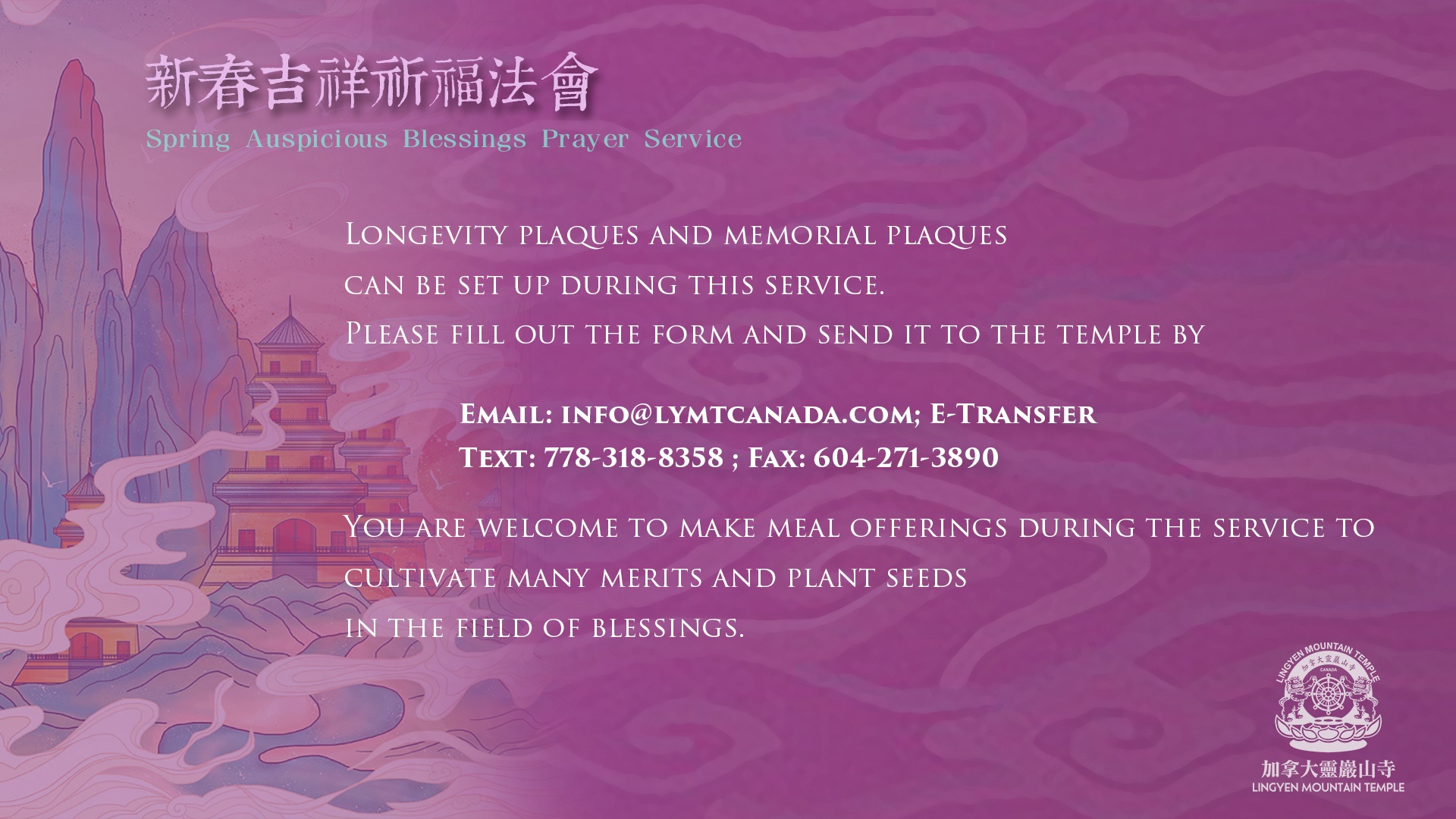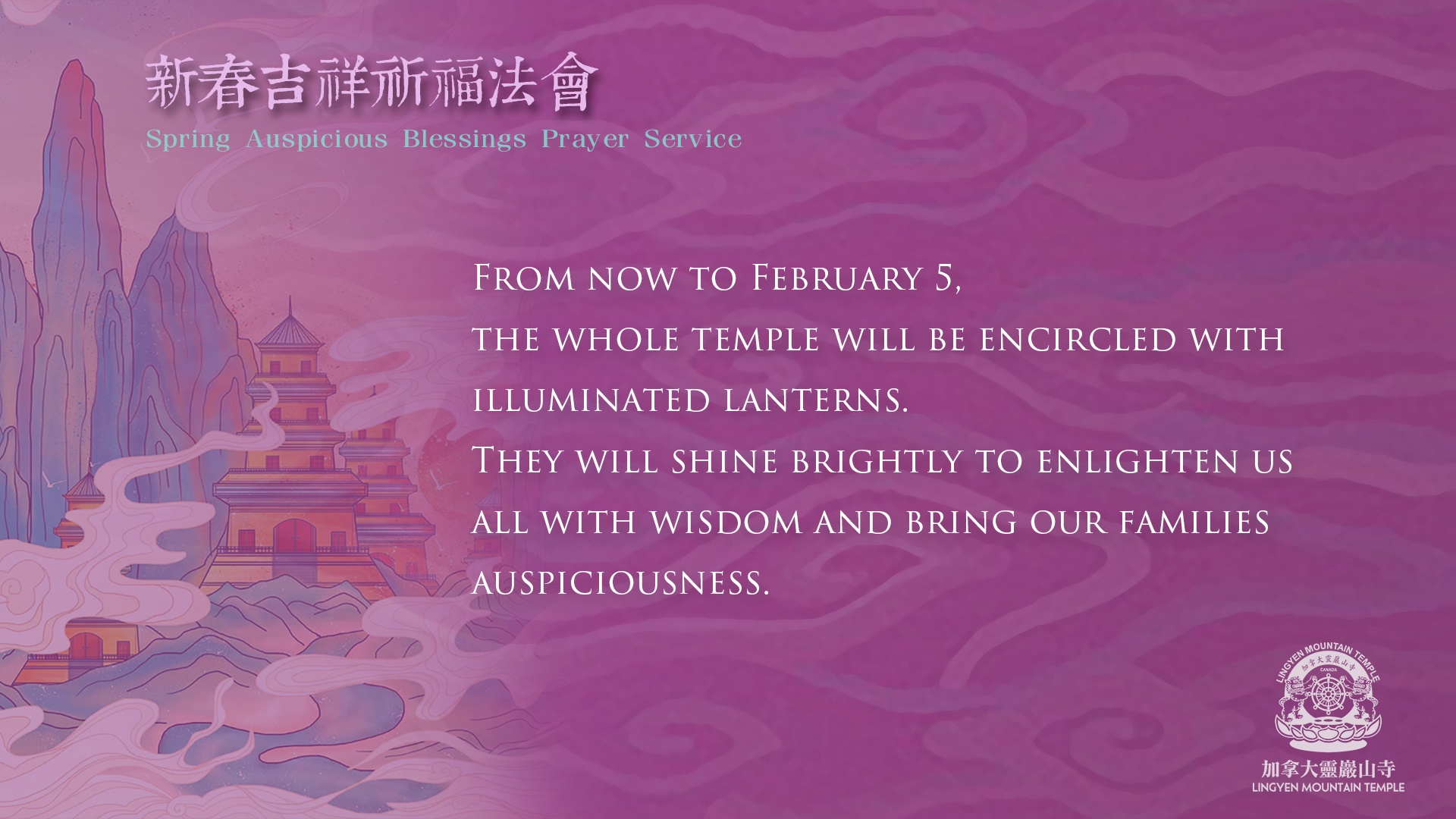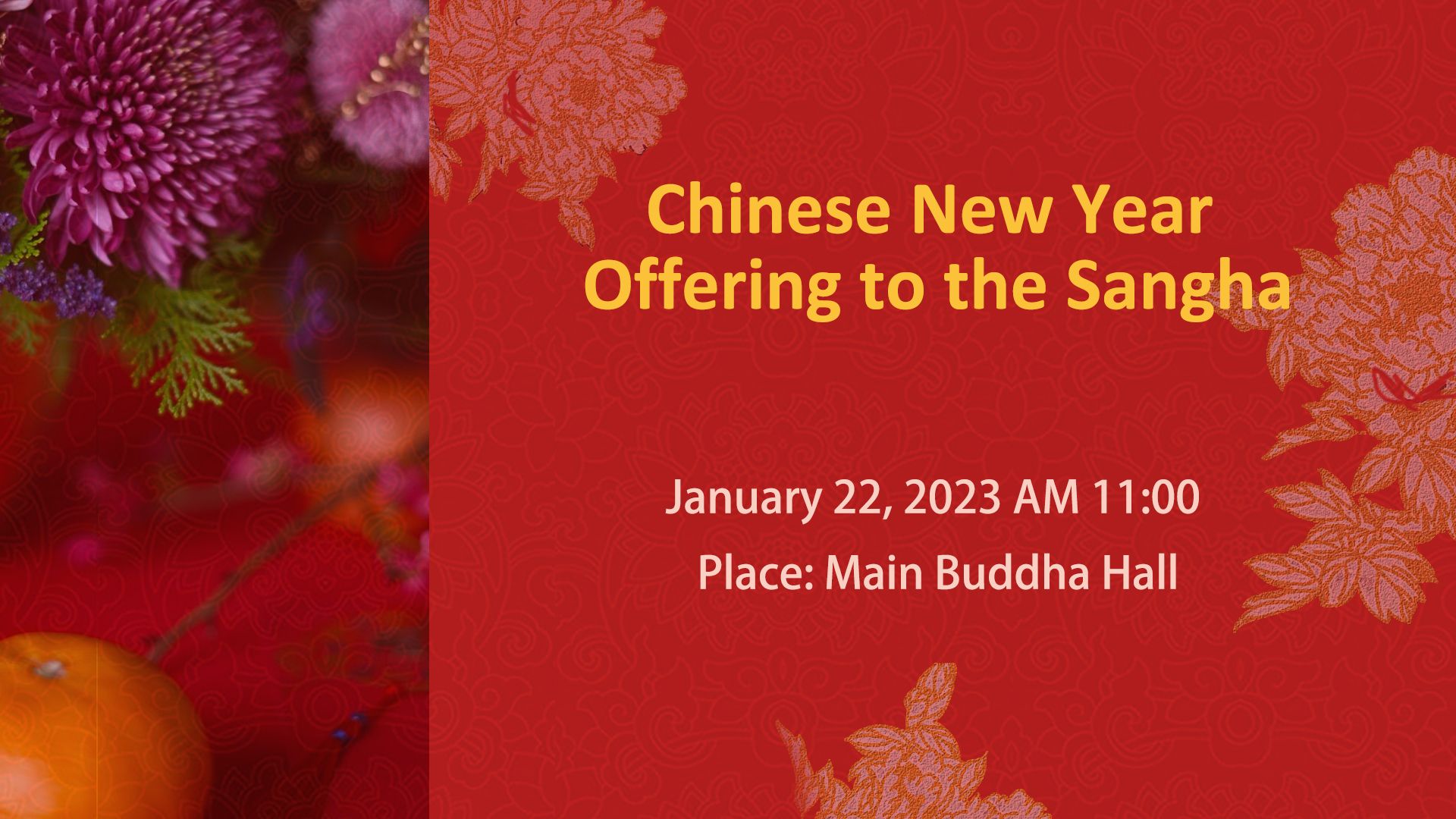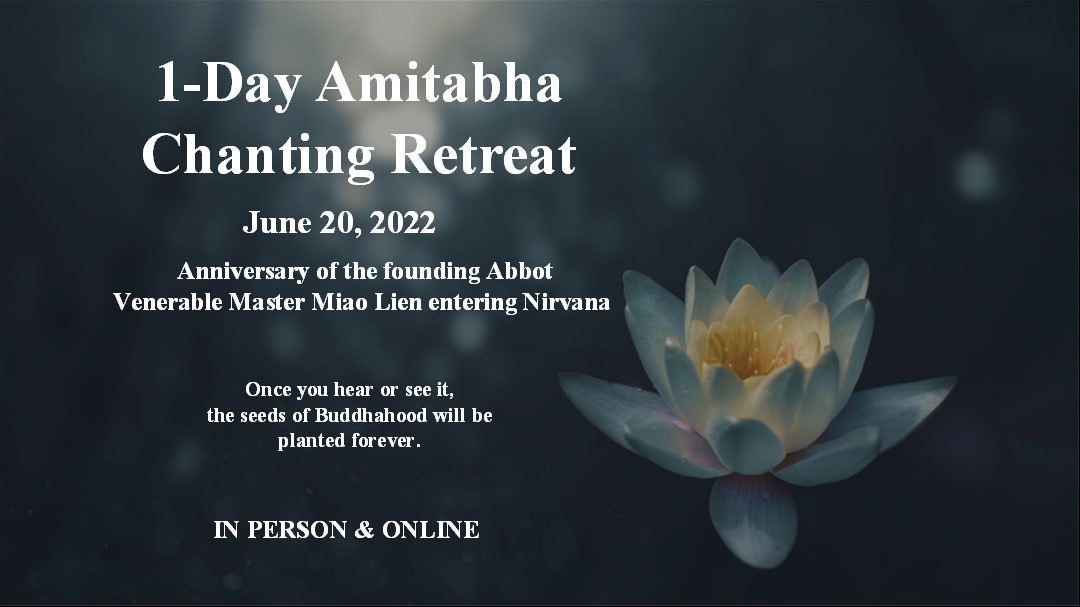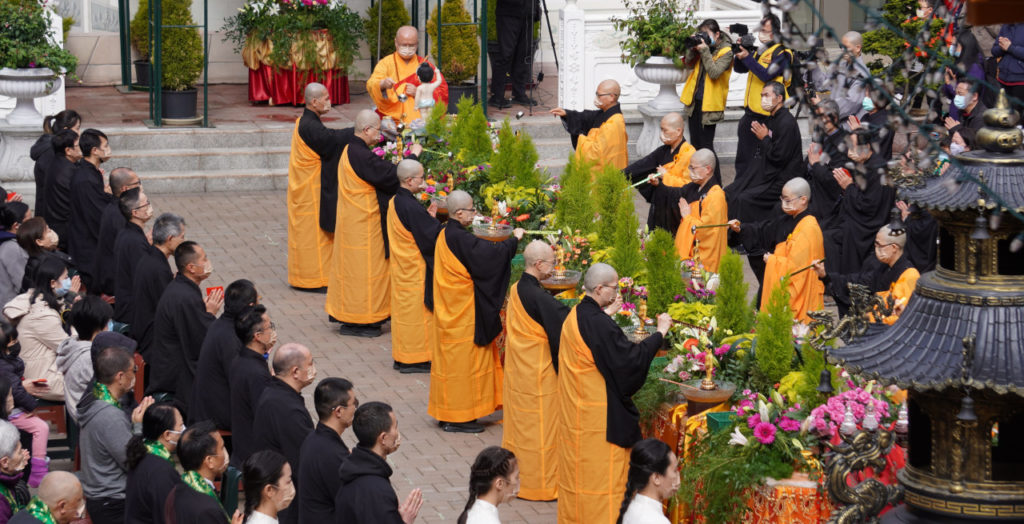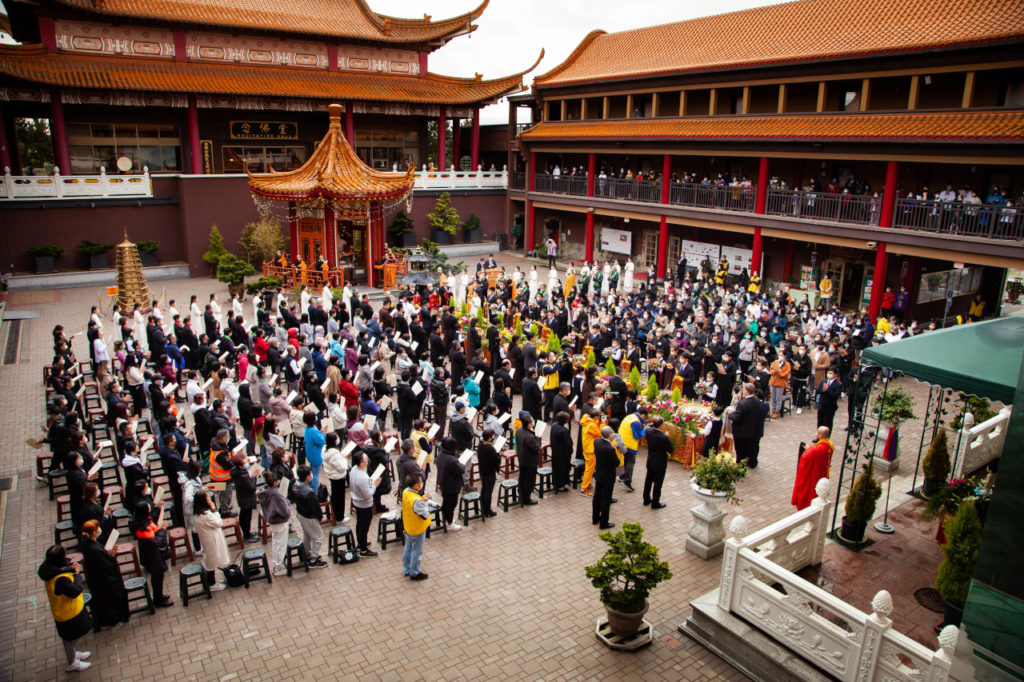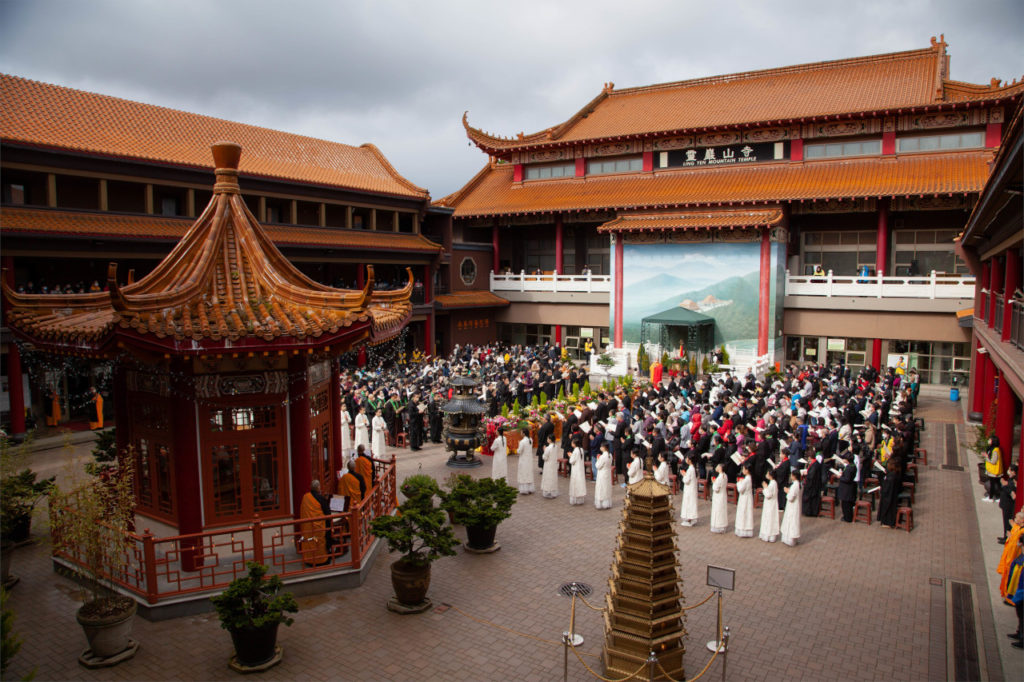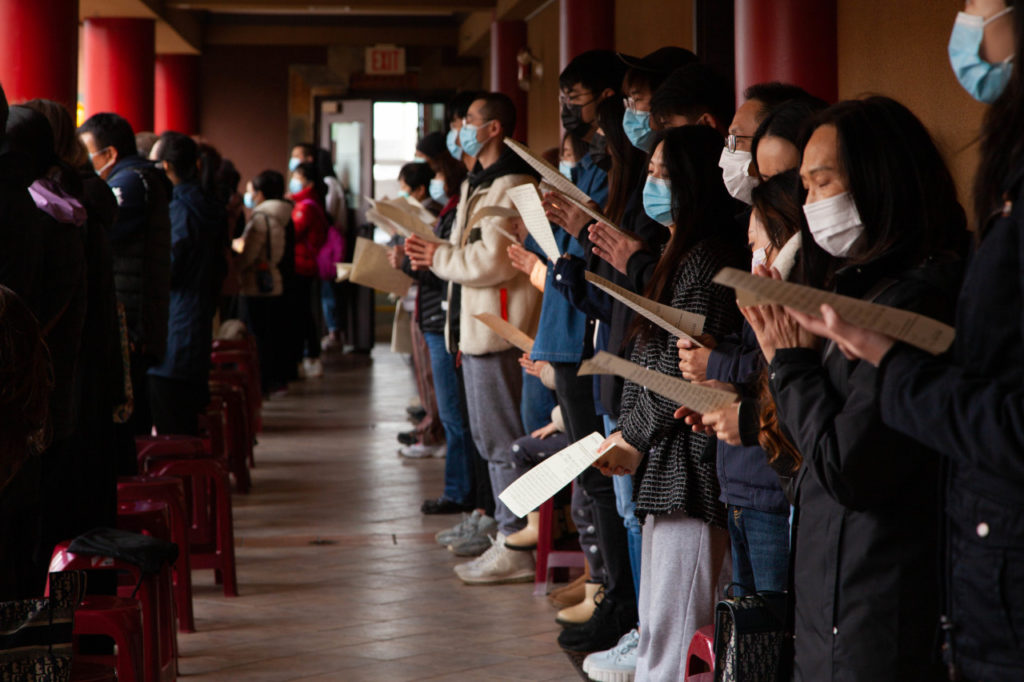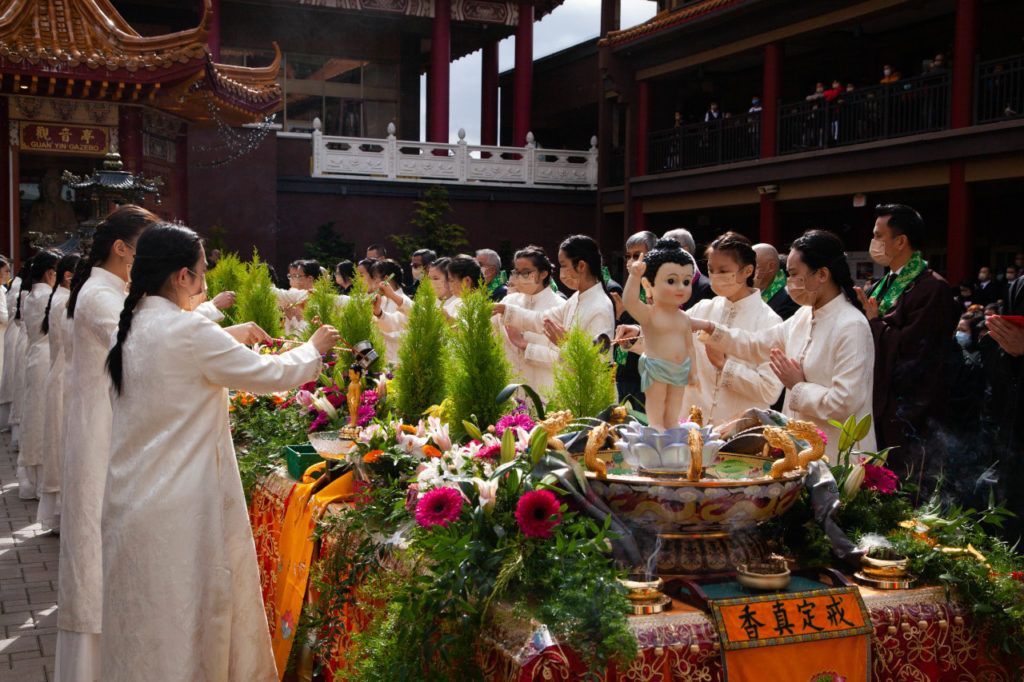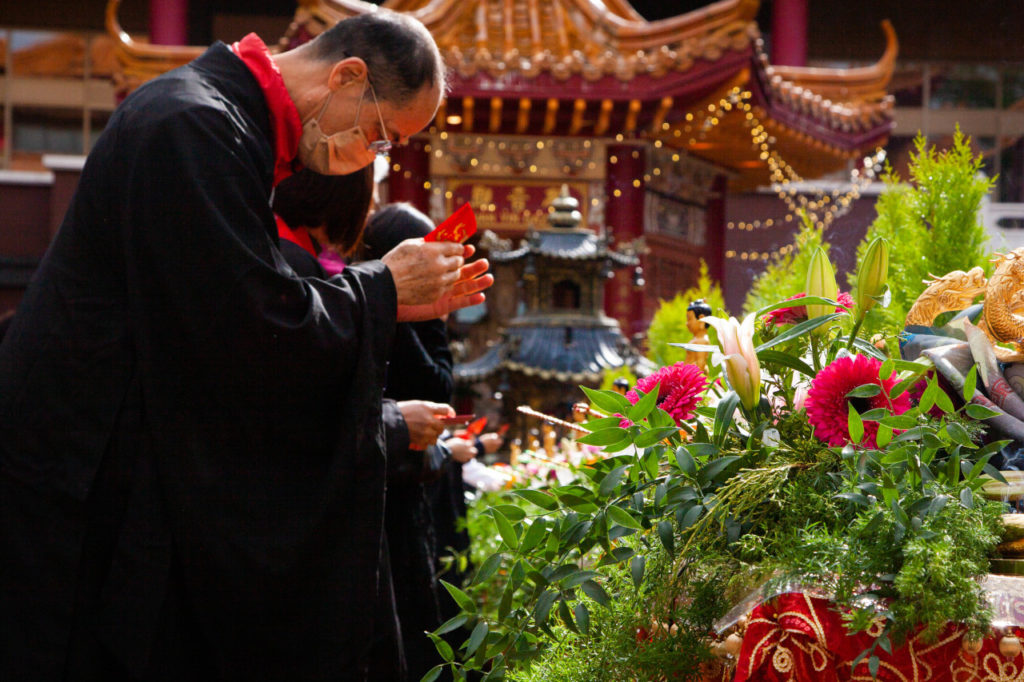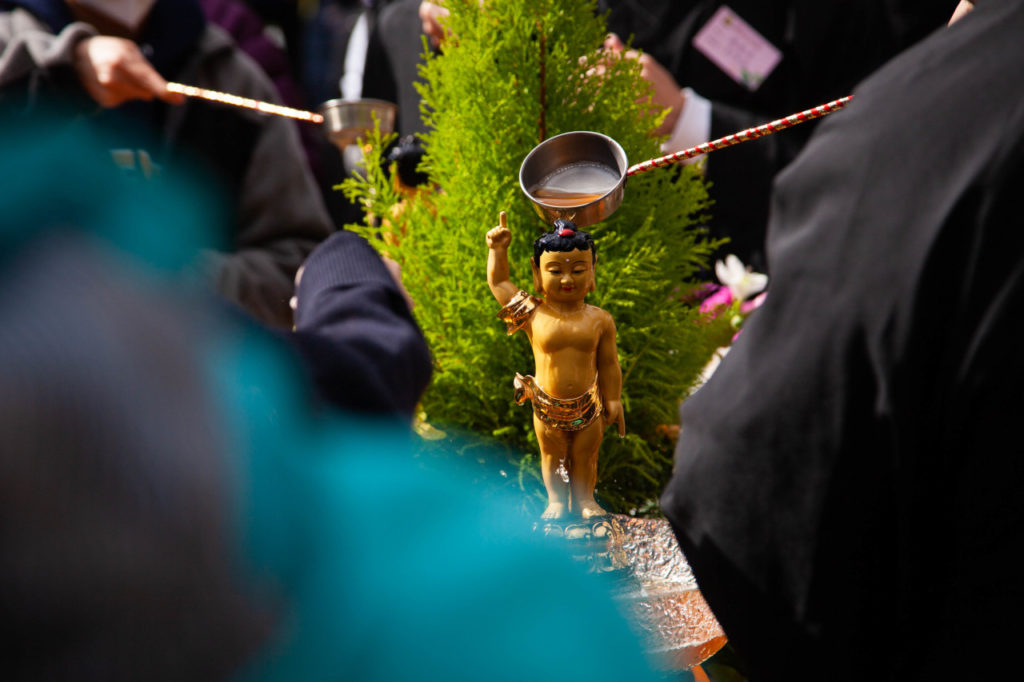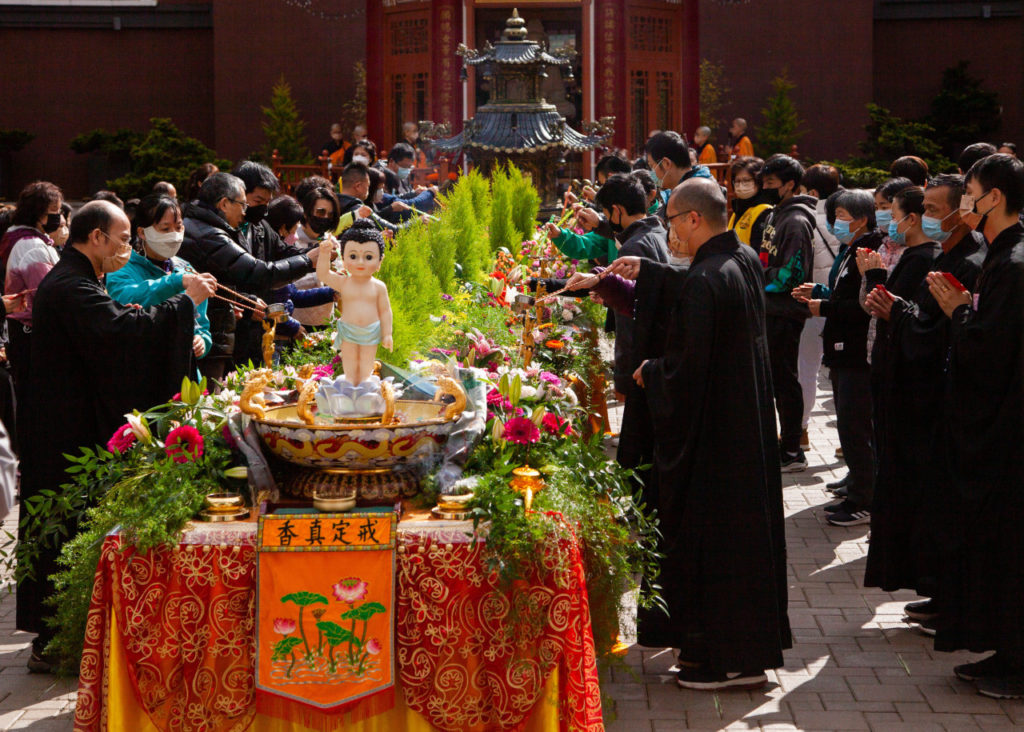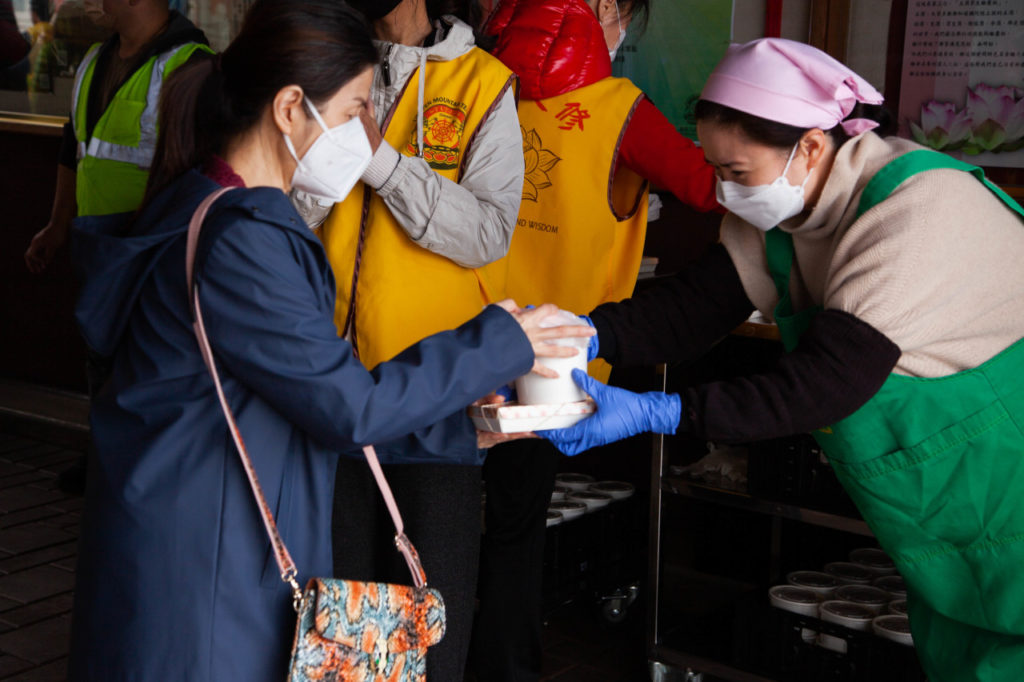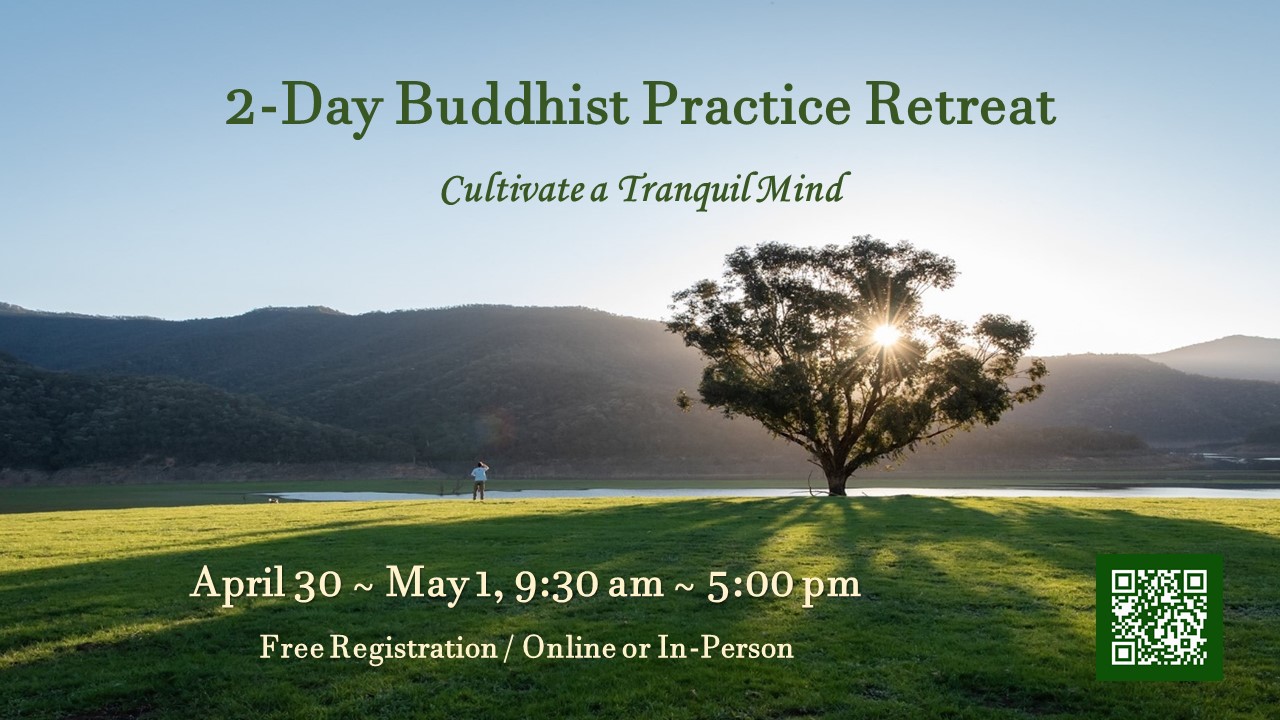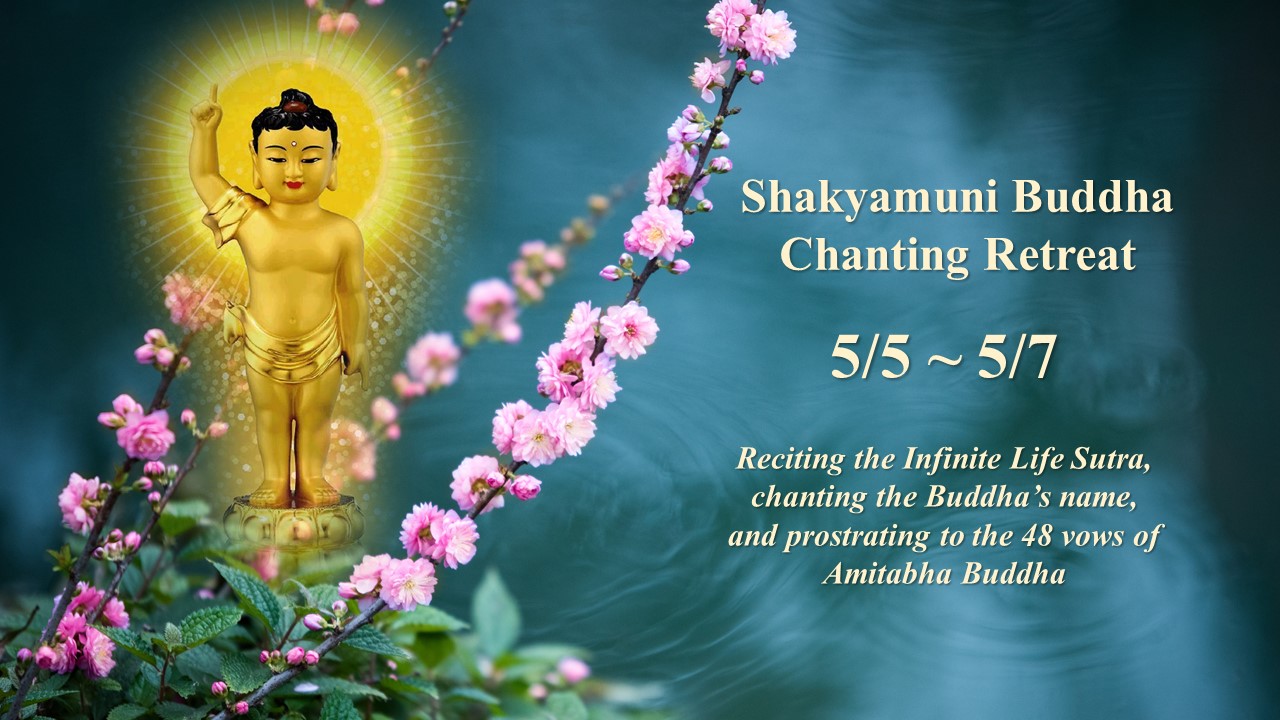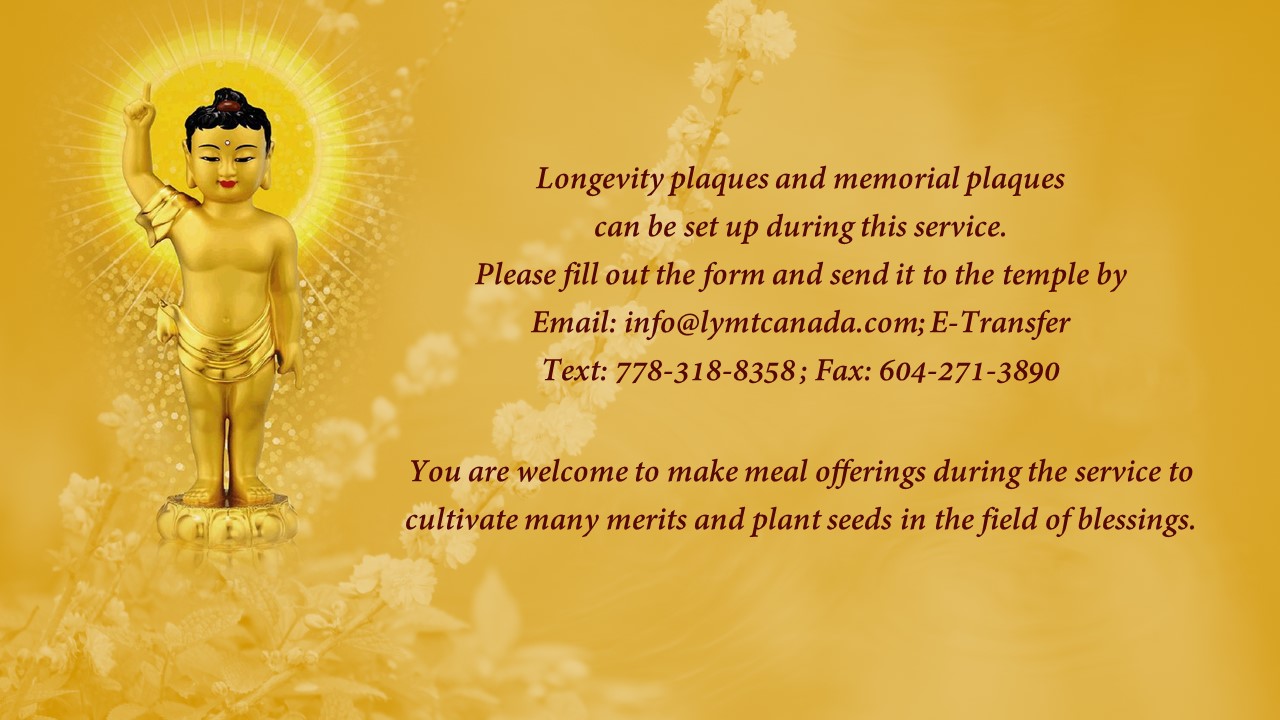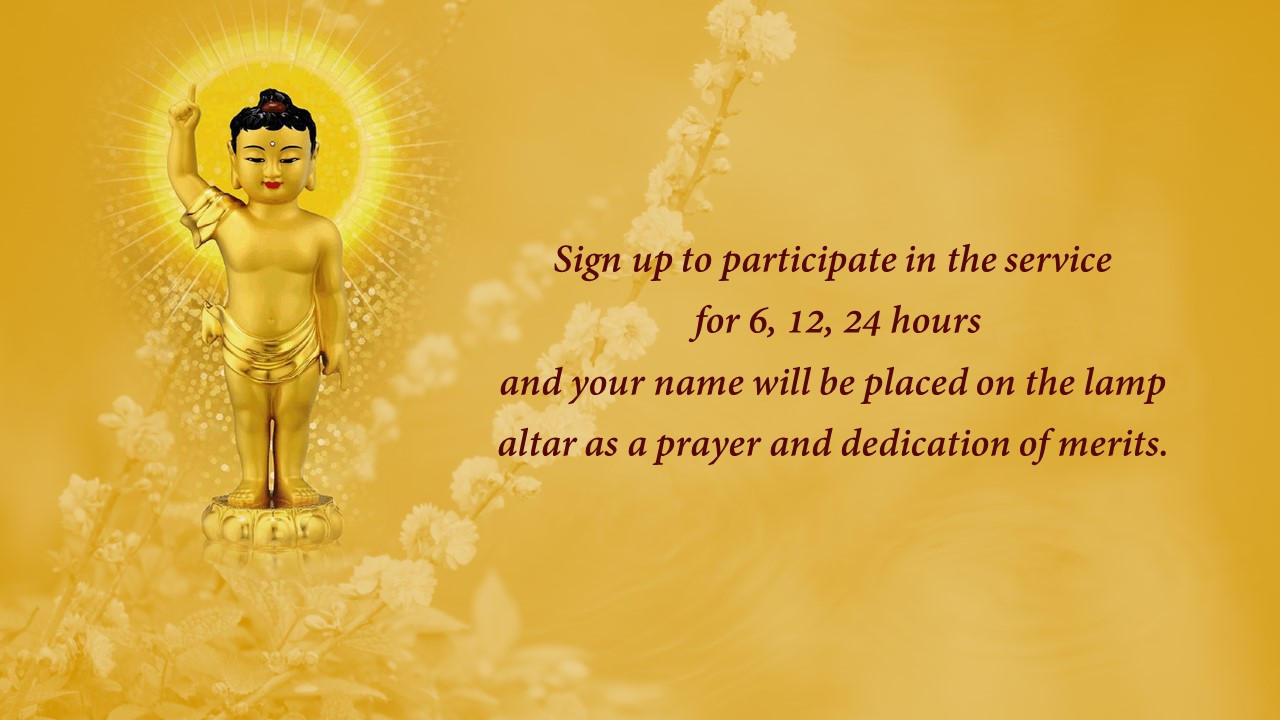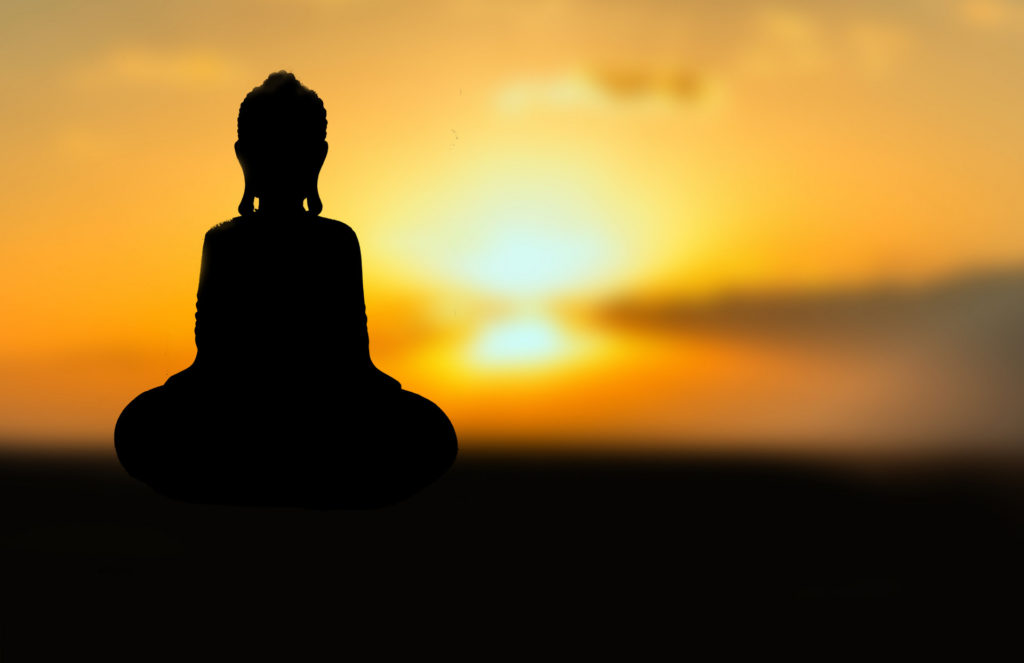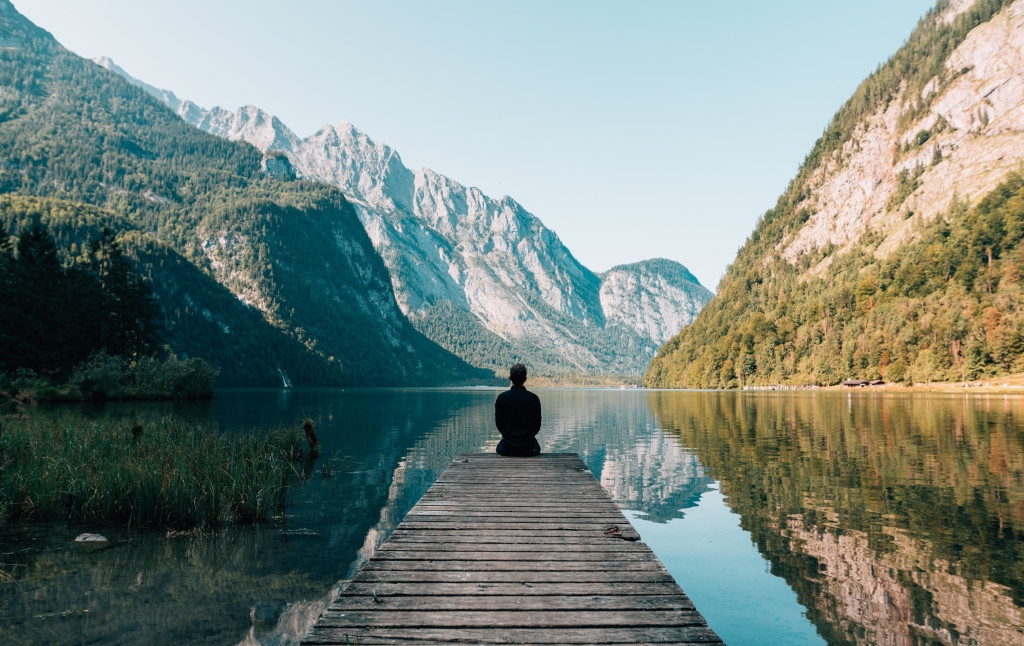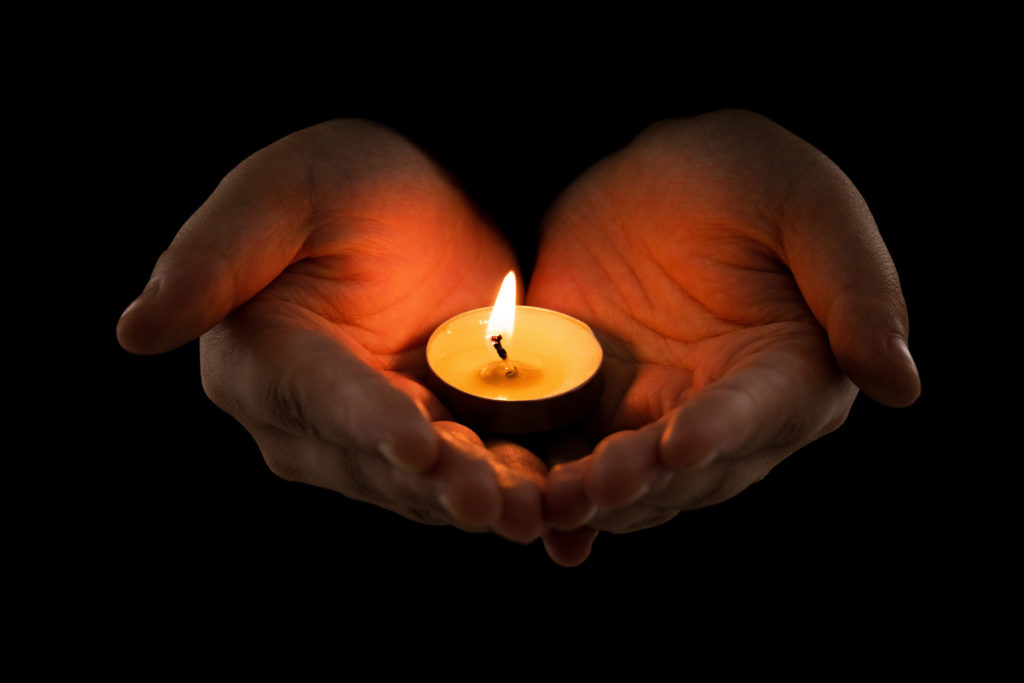These days, vegetarianism has become a societal trend. Many people advocate for following a vegetarian diet, each with their own circumstances and reasons. The founding Abbot of Lingyen Mountain Temple, Venerable Master Miao Lien, always encouraged people to chant the Buddha’s name and be vegetarian. He said, “Blessings, wisdom, good health, and longevity are all contained within a vegetarian diet.” The following are selections from the Venerable Master’s teachings which explain the ten main reasons for being a vegetarian.

1. Vegetarians are strong and well-nourished
People may say that a vegetarian diet does not provide enough nutrition, but this is an outdated way of thinking. Maybe it was that way, forty or fifty years ago, when meat-eaters did not get enough nutrition either. People did not have enough food to eat, let alone worry about nutrition! These days, everyone knows that a vegetarian diet is not only nutritious, but also clean. There are side effects to eating the meat of pigs, fish, etc. because of the harmful bacteria in their meat. Scientific studies have long uncovered that when animals are about to be killed, toxins are released in their blood due to their extreme fear and anger. These toxins will do harm to the people who eat their meat. Many athletes are vegetarians, because a vegetarian diet not only provides enough nutrition, but also optimal health and strength. A vegetarian diet is rich in nutrition and clean. It provides the benefits of eating meat, without the side effects. This is agreed upon and promoted by nutritionists and medical professionals. They believe that eating meat is not good for the body, while being vegetarian is nutritious and clean.
2. Being vegetarian is in accord with human nature

People who have studied biology know that human intestines are different from those of tigers, cats, and mice. Our teeth are different as well. These animals are born to hunt and kill other animals for food, so their teeth are sharp. Human teeth resemble those of cows and horses; they are square and flat—meant to eat vegetarian food. We should be vegetarian, in accord with our biological nature. In order to not bring harm to other living beings, and to be healthy, peaceful and at ease, we should all be vegetarians! This is in accord with the compassion of Buddhism, and in accord with our original nature.
3. Being vegetarian reduces illnesses
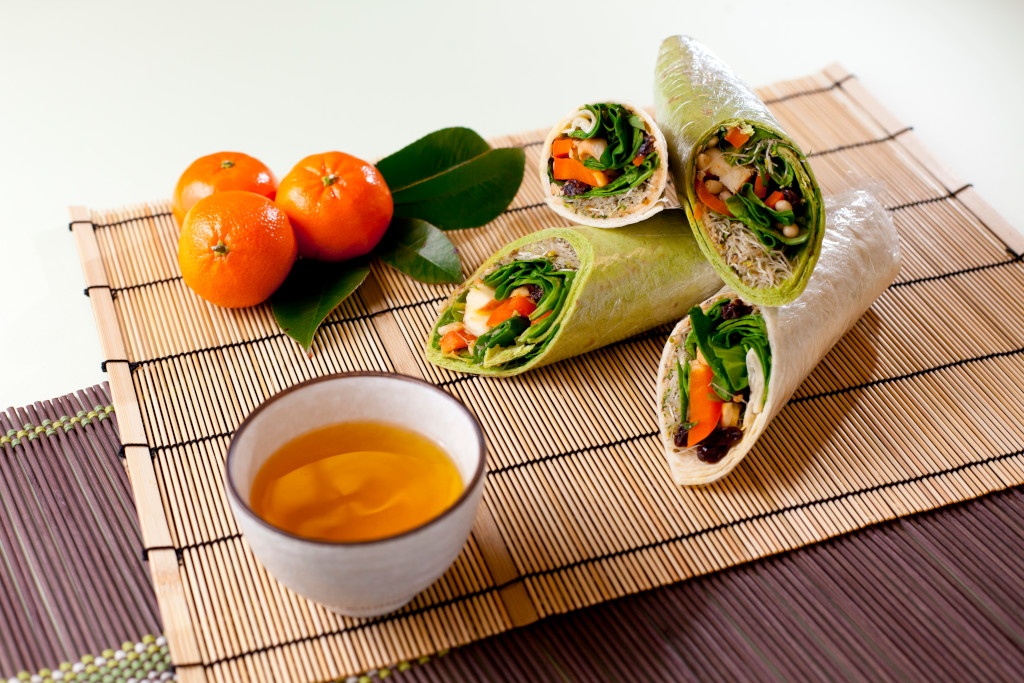
These days, nutritionists, scientists, and doctors understand the causes of illness and pain. To avoid suffering from illness for no reason, we should be vegetarian. Lingyen Mountain Temple published the book, Why Medical Doctors are Vegetarian, in which a medical doctor discusses the benefits of vegetarianism from the perspective of medicine, nutrition, science, and philosophy. Meat is high in fat and caloric content, both of which are causes high blood pressure. High blood pressure leads to heart disease. Being vegetarian reduces the chance of these health issues. Even if you do become ill, you will recover more easily.
What is even more scary is, if you eat meat, your stomach becomes a cemetery. Think about it: people die and are buried in a cemetery; when you eat meat and fish, you are putting their corpses into your stomach. With their spirits, and their animosity, inside your stomach, it is not surprising that there are cancers and illnesses of the internal organs. These are karmic retributions for eating meat; they cannot be cured by doctors. “Illness enters through the mouth.” Illnesses caused by karmic hindrance cannot be cured by seeing a doctor. The only one who can fix the problem is the one who caused it in the first place. From now on, do not harm other living beings, and be vegetarian. People who are vegetarian in the long-term will not suffer from major illnesses. Even if they do, they will recover much more easily.
4. Being vegetarian develops our wisdom

Vegetarians have keen mental acuity, wisdom, and concentration. Everyone should follow the way of living that is laid out in the Buddhadharma, which includes refraining from killing and being vegetarian. This is how to fundamentally extinguish unwholesome causes, which will naturally lead to the effects of having a healthy body and sharp mind.
5.Being vegetarian leads to longevity

How can we have long and healthy life? We need to have the causes in order to reap the effects; they do not just come naturally. If we want to be healthy and live a long life, the Buddha teaches us to chant the Buddha’s name, prostrate to the Buddha, and be vegetarian. These all lead to longevity and good health.
How is that so? It is very simple. Do you want to live a long life? Then you must not harm other lives. How can you expect to live a long life if you shorten the lives of others? Also, do not hurt other living beings. How can you expect to have a healthy body if you hurt others? Buddhism discusses dependent origination, which is cause and effect. The principle of cause and effect is the truth. What is true does not change over time: cultivating wholesome causes certainly brings about good effects.
6. Being vegetarian helps us avoid calamities
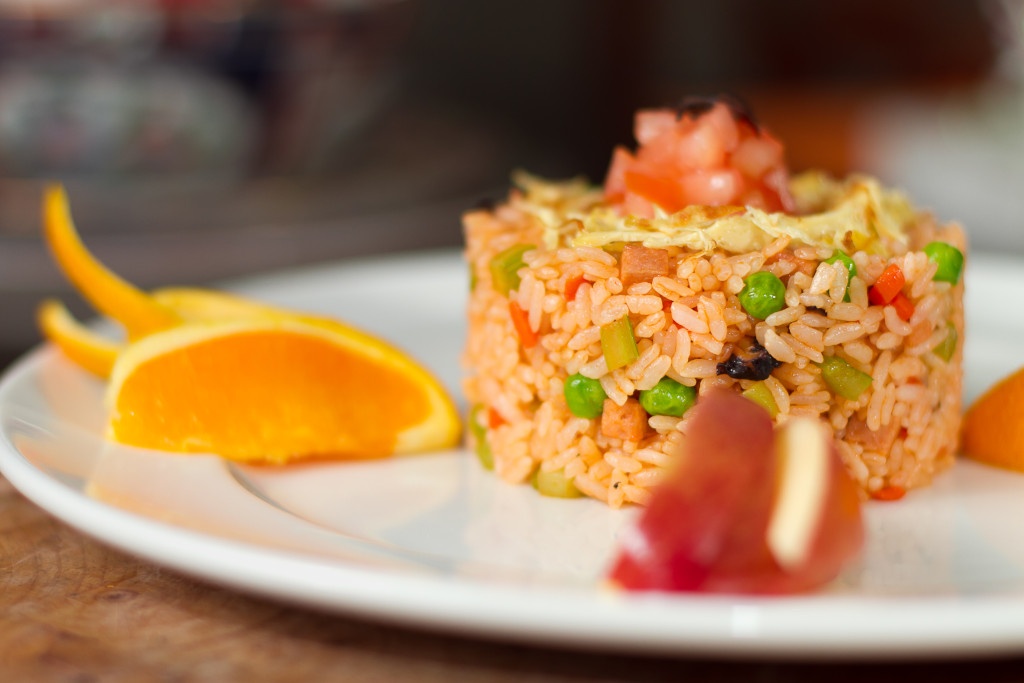
“For hundreds of thousands of years, the stew in the pot has boiled up a resentment very hard to level. If you want to know why there are wars in the world, just listen to the haunting cries that come from a slaughterhouse at midnight.” The wars in the world begin with what we choose to put into our mouths. When the karma of eating meat accumulates to a certain level, there will be wars. If everyone was vegetarian and did not create this karma, how could there be wars? There will not be an effect without a cause. If you maintain a pure vegetarian diet, you will have no part in the lives killed in the slaughterhouses. In the future, if an atomic bomb lands on your head, you will not die; you do not have the negative karma, how could it kill you? In fact, it is not only Buddhists who promote vegetarianism. Mencius also said, “Hearing its voice, I cannot bear to eat its flesh; seeing it alive, I cannot bear to see it die.”
Living together in this world, we should all respect each other. You respect me, I respect you. “If you respect me by one foot, I will respect you by ten feet; if you respect me by ten feet, I will carry you on top of my head.” If you do not 500 grams of their meat, you will not need to repay them with 800 grams. In the future, you will not suffer the retribution in the Three Lower Realms. The Buddha teaches us to transform unwholesomeness into wholesomeness; if we can all do so, wouldn’t the world be at peace?
7. Being vegetarian nurtures our mind of compassion

By “taking refuge in the Buddha,” we should learn from the Buddha’s compassion. Even if we cannot practice the Buddha’s great compassion, we should start by practicing smaller forms of compassion to gradually develop our mind of compassion. This includes being kind with our mouths by being vegetarian. Do not think that the meat you buy has been killed by someone else other than yourself. Know that the only reason they killed the animal is because you would buy it. If you would not buy it, they would not kill it. Isn’t that the same as instructing others to kill?
That is how the principle of supply and demand works in the market. “Meat-eaters destroy the seed of Great Compassion, and uproot the causes of the Buddha Nature.” In the Buddhist sense, the most noble reason for being a vegetarian is that we do not have a cruel mind. Because we want to eat their meat, if we do not care about the pain of other living beings, where is our mind of compassion? The Buddha explained how to perceive other people: treat all elders as our parents, those who are older than us as our older siblings, those who are younger than us as our younger siblings, and the youngest ones as our children.
Most importantly, all sentient beings are Buddhas of the future; they will certainly realize Buddhahood in the future. Now, they are still miserable ordinary beings, if they have yet to practice the Buddha Way. Once they do, they will realize Buddhahood. Since they are all honorable in this way, how can we bear to eat them? We would not dare to eat them anymore. Keeping this in mind, you will not want to put meat into your mouth anymore. If you set a good example, your family members will gradually change along with you. Don’t think that you are being compassionate to the animals by not eating them; you are actually being compassionate to yourself!
The Chinese character for “meat” contains two “human” characters stacked one on top of the other. Now, you might be on top and eat their meat, but what will you do when they turn around and eat you? That is what happens in the cycle of samsara. Don’t think that you are being compassionate to them; you are being compassionate to yourself by avoiding retribution in the future. That is how the principle of cause and effect works. They might not eat you in the future, but you will naturally receive the retribution of being reborn in the Three Lower Realms—how will you be able to bear it?
8. Being vegetarian is conducive to our practice
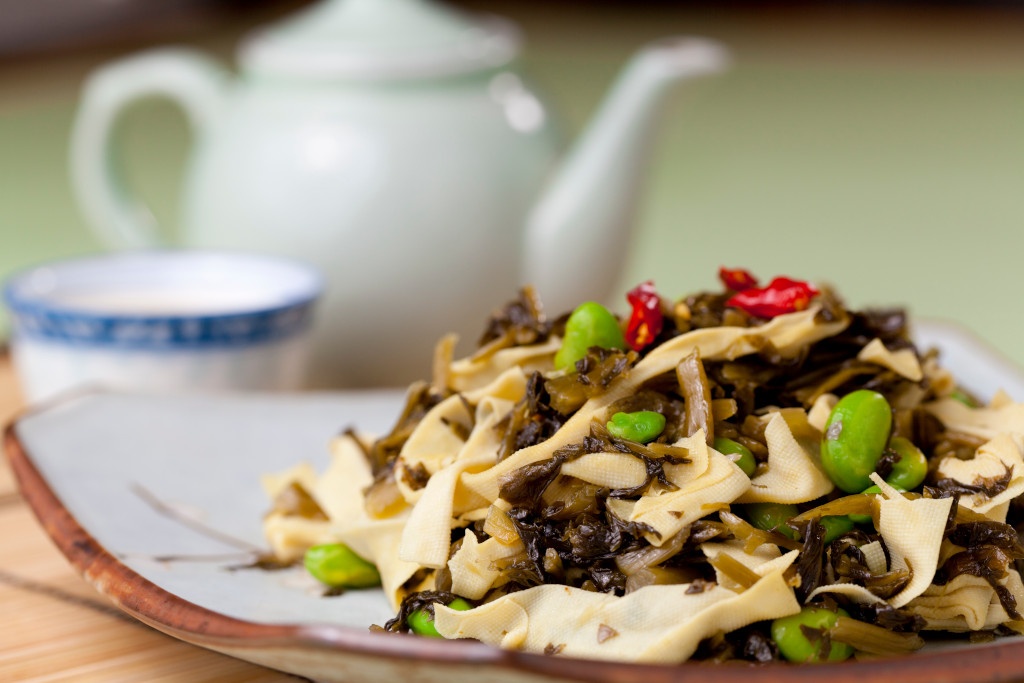
As a Buddhist disciple, if you wish to improve your life, live peacefully, happily, and without pain and suffering, then you need to start by being vegetarian. If you continue to accumulate the karma of eating meat and fish, the karmic retributions will be unbearable. “Do not do to others what you would not wish for yourself.” For example, if a tiger wanted to eat you, would you agree to be eaten? If a bad person wanted to kill you, would you enjoy being killed? Put yourself in the other’s shoes. If you wouldn’t want the same for yourself, then do not kill living beings and eat their meat. This is the fundamental solution. By not harming other living beings, and maintaining a vegetarian diet, you will certainly live a life that is in accord with the Dharma, peaceful, comfortable, and forever healthy. Why would you not do so?
9. Being vegetarian is the way to truly liberate lives
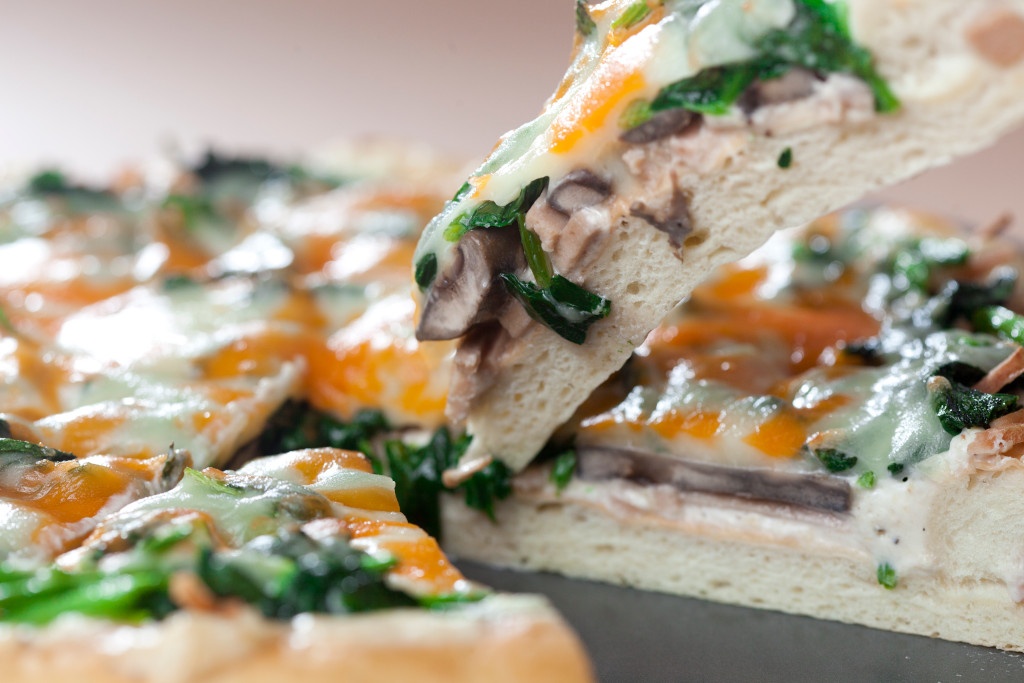
Of course, it is good to liberate lives, but it is not as good as being vegetarian. Being vegetarian is the real way to be compassionate, and the ultimate way to liberate lives. If you liberate lives but are not vegetarian, then how many lives can you liberate in your lifetime? You will not release as many living beings as you eat! If you resolve to be a vegetarian for life, then without spending a penny, you will have released millions of lives. Even without liberating lives, you will have blessings and virtue.
10. Be filial to your parents by being vegetarian
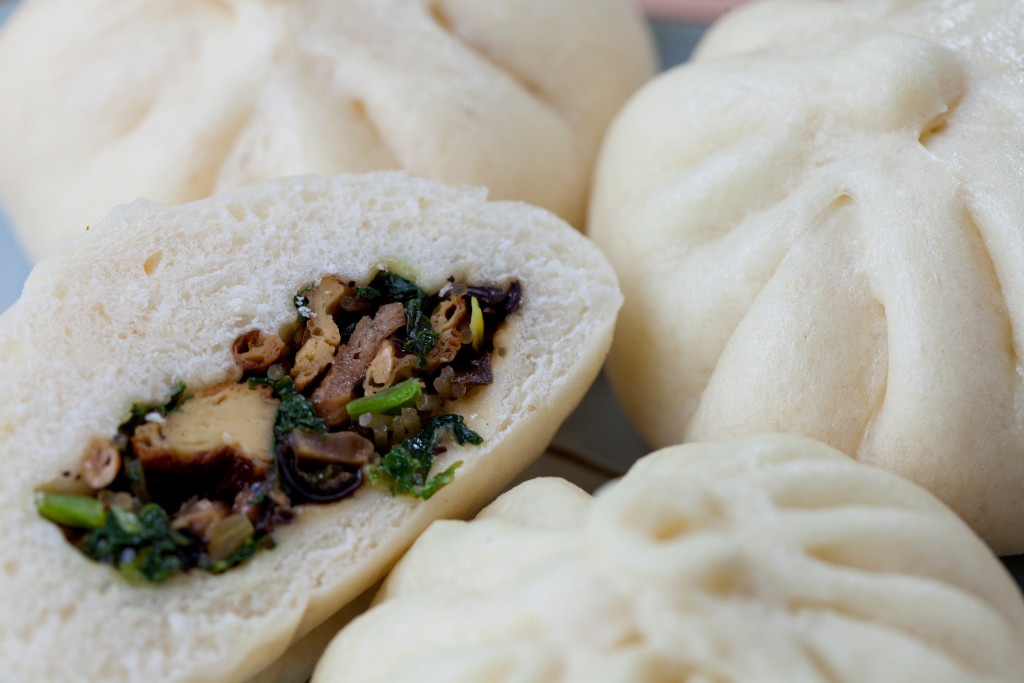
In the secular world, filial piety involves providing your parents with food and drink, and taking care of them when they are ill. Filial piety in Buddhism is different; it is not filial to buy a chicken to make soup for your parents. From a Buddhist perspective, if you kill a chicken for your parents, who will repay the karmic debt when the time comes? Your parents did not kill it. You thought you were being filial by killing the chicken for them. With good intentions, you did a muddled deed and harmed living beings. In the past, our relatives ate cows and sheep, and now they are reborn as cows and sheep to be eaten by people. If our parents and teachers over many kalpas have not been liberated from the Six Paths of Transmigration, then they might be cooking in the pot along with the other cows and sheep today. Knowing that all living beings are our parents of the past, then if you wish to be filial, you will not bear to eat the meat of any animal.
A vegetarian diet is pure, nutritious, and clean. It will lead to your own longevity, your descendants will be loyal and filial, and you will enjoy a life of blessings and good fortune. I encourage you to refrain from killing and avoid suffering the retribution! If you can develop your virtues by being vegetarian, you will have many children and grandchildren, wealth and longevity. Please join the many others who have taken up this healthy and contemporary practice of being vegetarian!
 (Please call us at 604-271-0009 before transfer)
(Please call us at 604-271-0009 before transfer)